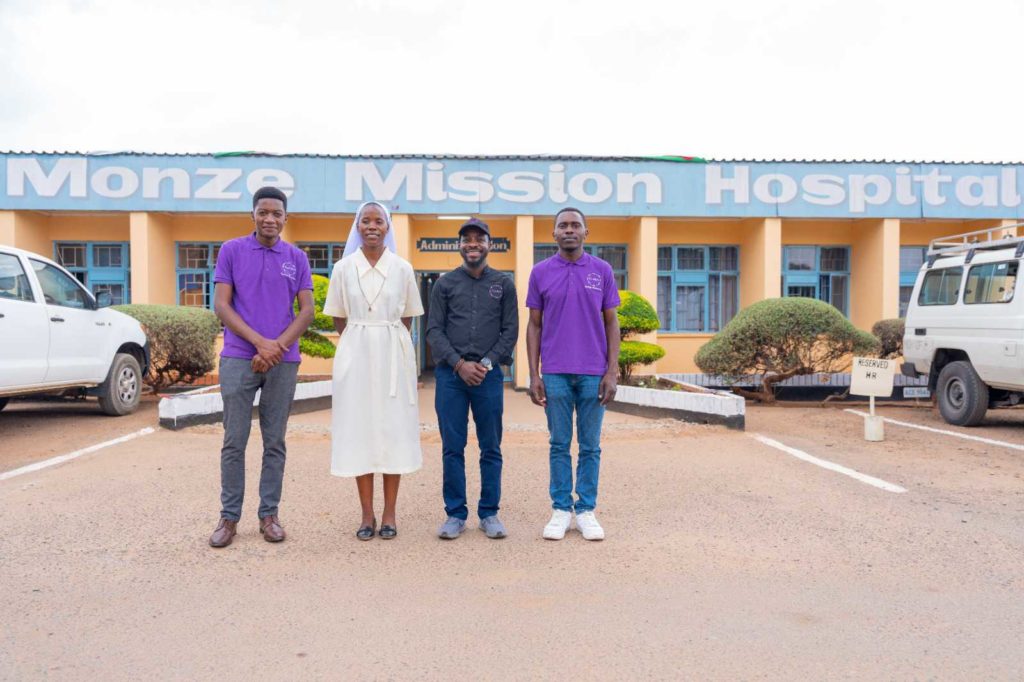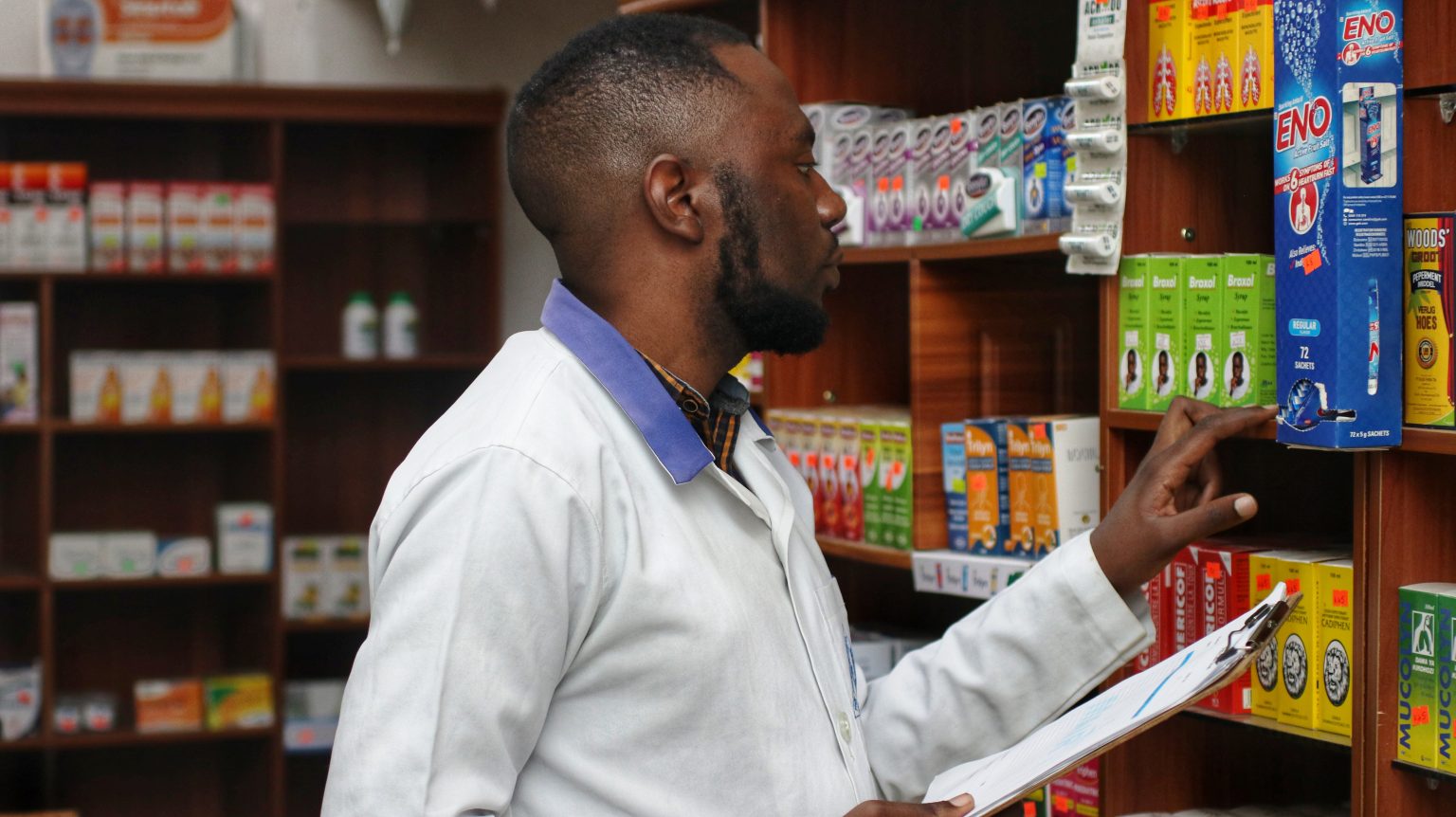In a remote part of Zambia, a heavily pregnant 17-year-old named Chipego arrived at a Catholic-run clinic in Monze District, south of Lusaka, with a high fever and unmistakable signs of malaria. The nurses immediately recognised the symptoms but had no drugs to treat her.
“We had run out of anti-malaria drugs,” recalls one of the sisters managing the clinic. The facility had placed an order weeks earlier, but deliveries to remote Zambia often take far longer than patients can afford to wait. Three days later, Chipego and her unborn baby were dead.
For Mwansa Chalo, founder of Duniya Healthcare, this was more than a tragedy. It was a call to action. “I kept thinking, how is this still a problem? Fifteen years later, how are we still here?” he told . “This is life and death. Nobody should die because medicine can’t reach them.”
Millions of Africans die each year from treatable diseases not because medicines don’t exist, but because they can’t reach those who need them. Africa imports 90% of its medicines, making costs higher and supply chains fragile. Even when medicines arrive in-country, poor roads and difficult terrain keep rural clinics out of reach. For these communities, shortages are the norm.
This is the problem Duniya Healthcare is trying to solve.
From family business to healthcare revolution
Image Source: Duniya Healthcare
For Chalo, this problem is deeply personal. He grew up in a family that has been in the healthcare business for more than 30 years.
“My mother, a retired nurse-midwife, ran her own private clinic and a small chain of pharmacies,” he says. “As a young teenager, my siblings and I would hang around the pharmacies and help her. She’d often call wholesalers to make orders and ask me to go pick them up.”
That early exposure to the system’s fragility stayed with him. But ten years ago, Chalo left the family business to strike out on his own, running a cleaning services company for seven years.
In 2022, a conversation changed everything. “I spoke to a friend who owns a retail pharmacy. He told me how much he struggles with procurement and deliveries,” Chalo says. “It reminded me of my mother’s struggles and I wondered, why has no one solved this?”
That conversation, combined with hearing about Chipego’s death from a Catholic sister, sparked Duniya Healthcare, which launched in 2023.
Before building technology, Chalo tested the idea the simplest way possible. He got a list of 20 fast-moving pharmaceutical products from a friend with a wholesale licence, then visited local pharmacies in his area.
“I went into the first pharmacy, had a chat with the pharmacist, showed them the list, and explained they could order from us and we’d deliver to their doorstep,” he recalls. One pharmacy owner reviewed the list and immediately placed an order. Chalo wasn’t prepared but took it anyway. The delivery took nearly nine hours as the team scrambled to source products and coordinate logistics, but it proved the concept. “That for me proved that there’s an actual need here,” he says.
How Duniya works
From those manual beginnings, Duniya has evolved into a dual-model system that serves two very different markets.
Urban pharmacies access a web-based platform (with a mobile app launching in August) where they can browse digital storefronts from 13 licensed wholesalers, place orders, and receive doorstep deliveries. The platform operates as a real-time marketplace where pharmacies can compare prices and pay directly.
Rural health centres follow a different process. They submit orders Monday to Wednesday, which Duniya aggregates by Thursday into bulk requests. Wholesalers bid to fulfil these consolidated orders, with winning bids delivered to Duniya’s Lusaka warehouse. The team then breaks them down into individual consignments and ships them to rural areas.
“It’s the same model telecoms used to expand rural coverage,” Chalo says. “In the early 2000s, telcos faced scattered pockets of demand in rural Africa. It was too costly for each telco to build towers individually, so third-party companies built shared towers that all telcos could use. We make it possible for wholesalers to reach areas they’d otherwise ignore.”
Duniya charges wholesalers a commission on transactions rather than end users, keeping medicine affordable whilst creating sustainable revenue.
Currently operating with 13 wholesalers, Duniya has been selective about supplier onboarding. “We’ve been a bit slow on the wholesaler side because there’s great demand from them,” Chalo explains. “They’re all coming at us, but we want to make sure we’re not just lumping suppliers into the platform. They need to bring in a different catalogue of products.”
The company operates from Lusaka but leverages 11 retail pharmacy agents as local distribution points in towns where Duniya lacks a physical presence. These licensed pharmacies receive a share of the commission for handling last-mile deliveries.
But Duniya is more than a delivery service. It is also a data company. The platform tracks order patterns, pricing, expiry dates, batch numbers, stockout duration and mortality from 10 fatal diseases. It monitors demand seasonality and spikes as proxies for potential disease outbreaks, helping spot emerging health crises early whilst informing policymakers.
The company is also preparing to tackle Africa’s counterfeit drug crisis, which kills an estimated 500,000 people annually. Duniya plans to integrate artificial intelligence and blockchain into its platform to improve pharmaceutical traceability. “Traceability isn’t optional,” Chalo says. “It’s survival.”
The $10 million validation
In 2024, Duniya signed a five-year, $10 million contract with the Zambia Conference of Catholic Bishops and the Africa Health and Economic Transformation Institute to digitise procurement and streamline medicine distribution to 75 Catholic mission hospitals across rural Zambia.
Six months in, the results are striking, according to Chalo. Participating facilities have seen nearly 30% reductions in medicine costs, and stockouts that were once weekly are now rare.
The impact is notable for facilities like Santa Maria Mission Hospital on Chilubi Island in Samfya district, located 800 kilometres by road from Lusaka, then 50 kilometres across Lake Bangweulu by boat.
“We have always had challenges with delivery and transportation of medicines to our facility because it is not just in the deep rural areas in northern Zambia, but it is on an island, which makes procurement and delivery of essential medicines very difficult,” says Reverend Sister Veronica Mwale, who manages the hospital. “But ever since we started working with Duniya, frequent stockouts have become a thing of the past.”
In just six months, Duniya’s distributed medicines have reached more than 750,000 patients and, by Chalo’s estimates, saved at least 300 lives.
Growth trajectory and market opportunity
That traction is translating into impressive numbers in Zambia’s pharmaceutical market, projected to reach $189.8 million in 2025. In 2024, Duniya moved $1 million worth of medicines. In 2025, that number is projected to triple to $3 million. The startup now supplies more than 600 retail pharmacies and hospitals nationwide and aims to reach 1,000 facilities by the end of the year.
Over the next three years, Chalo plans to expand into Kenya and Uganda, scaling up to 10,000 facilities across an East African pharmaceutical sector set to hit $2.36 billion in 2025, growing at roughly 4% annually through 2030. “Our mission is to build the largest distribution network for medicine in Africa that no one has dared to build,” he says. At that scale, he estimates Duniya could help save at least 50,000 lives annually.

Image Source: Duniya Healthcare
Duniya’s work has not gone unnoticed. The startup was named one of the Top 3 Finalists in the Harvard HealthLab Accelerator (H2A) Africa programme and won the World Summit Award (WSA) as the only African startup to achieve this recognition, earning the title of the most innovative healthcare startup in the world.
Funding journey
Chalo initially bootstrapped the business with personal savings from his cleaning services company, then conducted a friends-and-family round.
“I probably would have talked to maybe about 30 of my friends. And I think only two of them had enough money to let go of and say, okay, I believe in your dream,” he recalls.
The first investment round raised $25,000, followed by a bridge round that secured $16,000.
Local fundraising proved challenging due to high interest rates. “You’re competing with very high interest rates,” Chalo explains. “In Zambia, interest rates average upwards of 19%. Most investors think they’ll get better returns from bonds, which have very low risk.”
This drove Duniya to seek international investors, ultimately leading to support from Digital Africa and other foreign backers who operate in lower-interest environments.
To fund its next phase, Duniya is raising $1 million in pre-seed funding, with backing already secured from Digital Africa and Tamboti Circle. The funds will drive app development, expand logistics, and support East African expansion.
Looking ahead
The Catholic Church contract provides a foundation for regional expansion. “The church has said they would like us to apply this particular model to their facilities in Kenya and Uganda as well,” Chalo notes, targeting Q1 2026 for international expansion.
However, expansion faces familiar African challenges: infrastructure limitations, regulatory complexity, and competition from established distributors and government procurement systems.
Chalo’s five-year goal is ambitious: make Duniya the largest medicine distribution network in Africa. In the short term, he wants it to become Zambia’s second-largest distributor by the end of 2025, behind only the government.
The vision extends beyond logistics to systemic change. For Chalo, ensuring no African dies for lack of drugs isn’t just business, it’s a moral imperative that drives Duniya’s growth.
Mark your calendars! Moonshot by is back in Lagos on October 15–16! Join Africa’s top founders, creatives & tech leaders for 2 days of keynotes, mixers & future-forward ideas. Early bird tickets now 20% off—don’t snooze! moonshot..com











